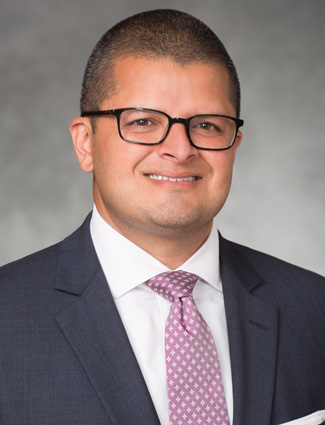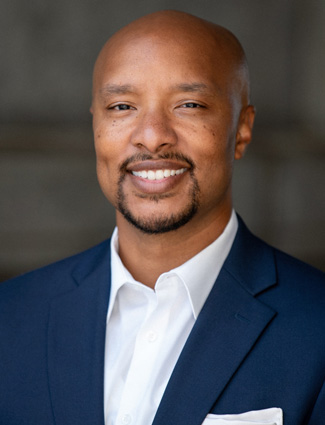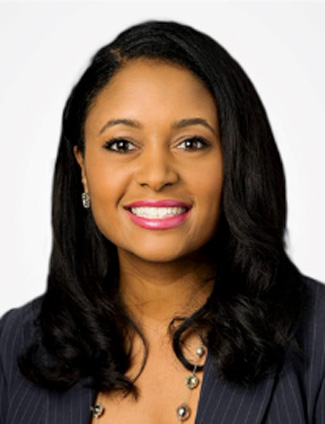
Benefits of Diversity in the Workplace: What Youth and Parents Should Know
Diversity, Equity and Inclusion (DEI) principles are designed to promote representation and participation from all the groups that make up an organization or community, but when it comes to creating a thriving society, culture and workplace, they have plenty of benefits beyond ensuring everyone’s voices are heard.
We spoke with three industry leaders — Carlos Muñoz, executive director, Head of Asset Manager Diversity, Equity, and Inclusion Engagement in Wealth Management at Morgan Stanley and leader of The Equity Collective; John Ferguson, senior vice president and chief human resources officer at NASCAR; and Shanda Hinton, chief diversity officer at RTX — about the benefits of a diverse workplace and what youth and parents need to know about this important topic.
All three represent national partnerships with Boys & Girls Clubs of America, supporting life and workforce readiness for millions of kids and teens each year and with a focus on expanding diversity within their respective fields — from job shadowing to essential skillbuilding to igniting interests in the many paths to a fulfilling career.
Why Diversity in the Workplace is So Important
In addition to promoting fairness, incorporating DEI into workplace culture can help companies — and their employees — maintain a competitive advantage. Here are some added benefits of DEI in the workplace:
- Provides a safe environment free of judgment.
Taking active steps to acknowledge — and even celebrate — differences creates a sense of safety and connectedness among employees and fosters a healthy corporate culture. As Shanda from Raytheon Technologies explained, “When we create an inclusive workplace that lets everyone contribute, we can achieve a higher level of results.” - Fosters innovation and creativity.
Diverse teams are more likely to remain objective, integrating various perspectives to inform their decisions. Not only are the outcomes more innovative and creative, but products or programs are more likely to appeal to a broader audience than those designed by a team from similar cultures and backgrounds. In fact, research by Deloitte reports that inclusivity enhances innovation by as much as 20% while reducing risks by as much as 30%. - Shows youth what’s possible.
If you can see it, you can be it! As young people begin to explore career paths that interest them, diversity in management helps youth imagine all they can achieve. “Seeing leaders in management who span all dimensions of diversity has a tremendous impact on younger generations and is critical to helping organizations adapt to diverse global markets, talent, and meet the ever-evolving needs of customers,” Shanda further explained. - Builds trust.
“A diverse workforce also allows for more equitable allocation of resources and increases [an organization’s] ability to see blind spots,” Carlos of The Equity Collective and Morgan Stanley added. Recognizing and addressing “blind spots” enhances trust in the communities businesses serve, as well as within the organization. - Increases collaboration.
Diversity is good for business. “Diversity allows an organization to benefit from varied perspectives, [leading to] better collaboration, increased relatability as well as a broader swath of past learnings and experiences,” John of NASCAR explained. Increased collaboration helps to enhance organizational productivity and efficiency, which can ultimately reduce costs and increase profits. - Decreases turnover.
DEI principles give employees from underrepresented communities a sense of belonging, which helps attract, retain and promote diverse talent. As Carlos said, “Diverse management signals to the diverse employees that their own potential for growth at the organization is possible.”
People want to work in a company that reflects their own values. When they feel seen, heard and understood by a company practicing DEI principles, they are more inclined to go the extra mile — building a happier, safer working environment. But that all starts with talking about diversity in the workplace.
How Can Youth Identify DEI in the Workplace?
When exploring prospective career opportunities, there are a few techniques youth can employ to help identify a company’s commitment to DEI initiatives. As with any prospective career, it’s important to first do the research. Teens should look at the company’s website and social media channels — including Facebook, Instagram and Linkedin — and see what kinds of topics the company promotes. They can also look up the company’s environmental, sustainability or governance reports as well as any press, awards or recognition they’ve received for their efforts.
When interviewing for a job or researching a company’s commitment to DEI, a few sample questions to consider are:
- What are the core values of the organization and is DEI a part of those core values?
- What type of DEI programming do they offer?
- Is management diverse?
- Do they offer DEI training to all employees?
- Are there affinity groups such as a multicultural networking group?
- What do they do to attract, develop, and maintain diverse talent?
As the next generation enters the workforce, it’s more important than ever for companies to lead by example with impactful programming and diverse leadership. In fact, for Generation Z, the youngest generation entering the workforce, workplace diversity, equity and inclusion aren’t just a preference, they’re a requirement when considering prospective employers.
How Can Youth Contribute to DEI Efforts?
Youth can start by understanding the DEI initiatives of various organizations they may be involved in — whether that’s their school, community, sports team or local Boys & Girls Club. From there, they should identify a few key areas of DEI that they are passionate about — maybe that’s helping provide a voice to underrepresented members of the community, celebrating the culture of other members of the organization, or working to expand people’s knowledge and understanding of historical injustices — and find opportunities to get involved with them. If those opportunities don’t exist, youth can lead by example and start them within their own communities.
Each day presents an opportunity to act with intention to create a culture of belonging where all, regardless of backgrounds, identities or experiences, feel that their unique, and individual experiences and perspectives are respected, valued and heard.
Great Futures Start Here
All kids deserve the right to be themselves, feel a sense of belonging and have access to opportunities that support their great future. Boys & Girls Clubs across the country cultivate a sense of belonging and respect that helps today’s youth understand different cultures and hone critical soft skills like communication adaptability. In fact, 94% of youth say they’re able to work with people who are different from them! Learn how today’s Club kids and teens work together to create inclusive communities and positive change as they prepare for college, careers and life.
The Equity Collective, NASCAR and RTX, among others, support life and workforce readiness programming at Boys & Girls Clubs nationwide, preparing the next generation of leaders, problem-solvers and innovators for a great future. Club kids and teens experience hands-on skill building, career exploration and job shadowing, and programs that empower their success in school, in careers and in life. In addition to exposure to potential career paths, these partners have a keen focus on expanding diversity within their fields over time through these engagements.

Carlos A. Muñoz is the Executive Director, Head of Asset Manager Diversity, Equity, and Inclusion Engagement in Wealth Management at Morgan Stanley. Through his role, he leads a team that manages relationships with over 350 asset management firms, and he spearheads The Equity Collective, a collaboration of 27 asset management firms dedicated to increasing diversity, equity and inclusion in the financial industry.

John Ferguson is the Senior Vice President and Chief Human Resources Officer at NASCAR, where he leads the development and execution of human resource strategy, committed to reflecting an increasingly diverse America and embracing all audiences. NASCAR believes in representation across every level of the organization in order to drive the company forward.

Shanda Hinton is chief diversity officer at RTX. In partnership with the RTX executive team, Hinton is responsible for advancing diversity, equity, and inclusion (DE&I) across the enterprise through strategies, programs, and initiatives focused on workforce diversity, community engagement, public policy, and suppliers.